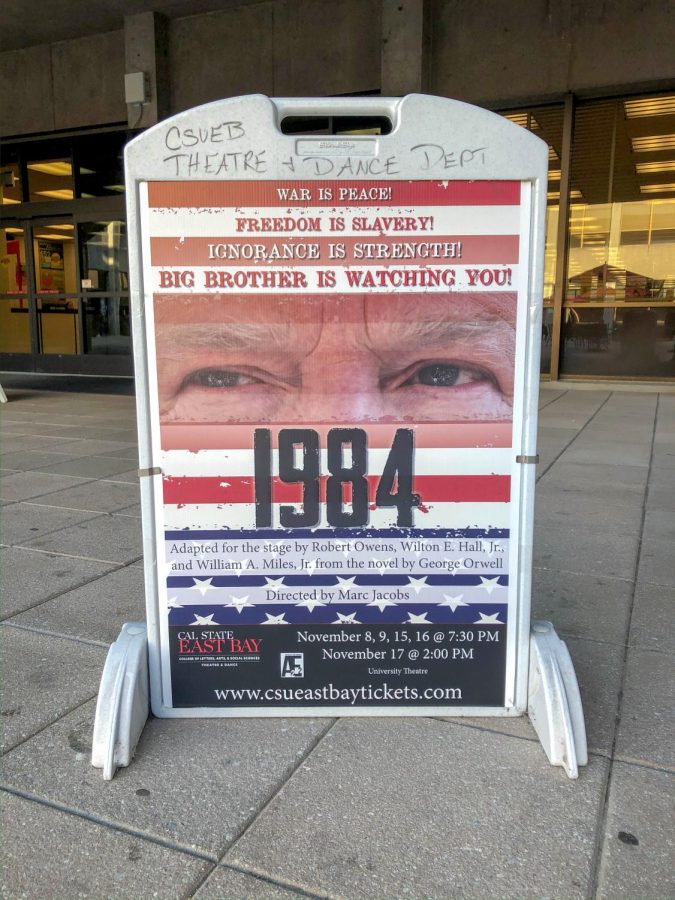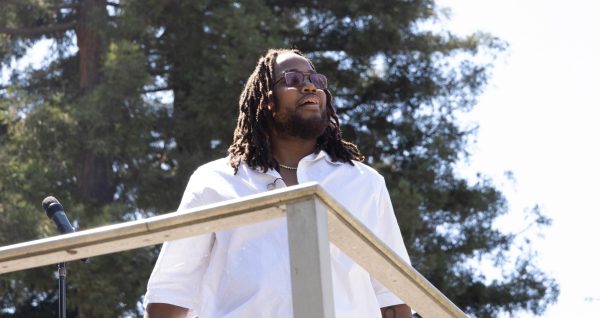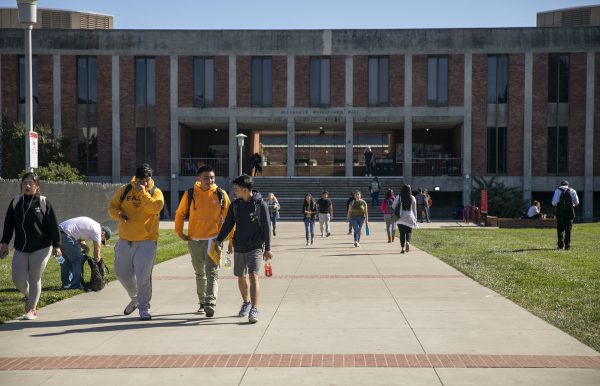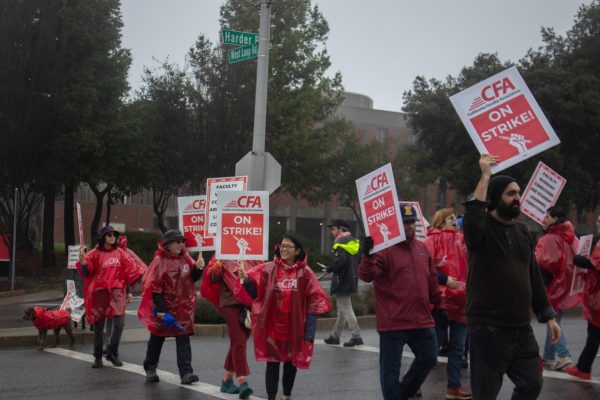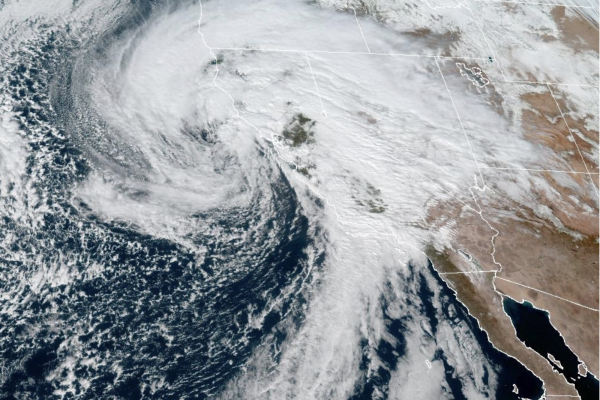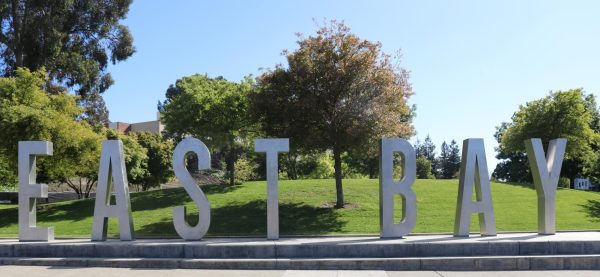Big Don is watching you.
October 31, 2019
“Big brother is watching you.”
Those words have become iconic in this day and age. Iconic, yet so true. George Orwell’s novel “1984” established these words and gave them meaning. They allowed people to begin to question their government and wonder if all of our secrets are really our own.
This year the Theatre department at California State University, East Bay is hosting a performance variation of the classic novel “1984.” The show is on Nov. 8, 9, 15, and 17 in the University Theater. However, this version will be a modern take on the story set 30 years in the future while still addressing today’s current affairs and issues.
The play will focus on our current government and how they are increasingly infringing on our privacy and how we go about our lives without noticing it. How long can we go without noticing this type of interference? How long will it be before we start saying “the President is watching us?”
The novel “1984” was published in 1948, set in a dystopian society where people worship and live under a tyrannical government known as Ingsoc. Ingsoc is lead by the tyrant Big Brother after a global war. In this society, people are not allowed to speak, dress or even think freely.
People in the community are forced to mate with one another even if they do not feel a connection with people they are paired with. The government monitors their conversations and actions through telescreens that report back to the government. Thoughts are recorded and surveilled by a pervasive group called the Thought Police.
If a person speaks out against Big Brother, they are subject to torture and eventual execution. The novel reveals that Big Brother and Ingsoc do not care about their people, they only care about having total power over the world.
This version of “1984” is directed by CSUEB’s very own Theatre professor, Marc Jacobs. In order to make the story his own, Jacobs changed a few key elements to the plot. However, he made sure to keep the show’s overall meaning the same.
“I haven’t changed the story of “1984” very much, other than setting it in a future America of approximately 2050,” Jacobs said. “But what I have done is to incorporate lots of video of what’s going on in the world today, that mirrors Orwell’s dystopian society of “1984.”
Even with these minor changes, the cast will still convey the message of government interference and intolerance. Jacobs has craftily inserted elements from today’s society in order to create a story that is timeless.
The story of “1984” does tie into many aspects of today’s culture and society. We have our own version of Ingsoc and Big Brother, and this play is highly emphasizing that.
“I open the show showing everyone engrossed on their cell phones, not being aware of each other or even the world around them. Orwell has a line in the book: “The people will never revolt because they will not look away from their screens long enough to see what’s going on.”
The leading actors are no strangers to what is going on in the world and they are tying their feelings into their performance. Shelby Broadnax, who is cast as the primary character Julia, expressed her excitement at playing this variation of this iconic character. Broadnax also expressed her views of what the show stands for.
“I feel these issues directly relate to current events in media and politics. A lot of things like information and language is being suppressed by the media and so much is going on, but like it’s said in “1984” people are too busy looking at their screens to see the truth,” Broadnax said.
Jasmine Johnson is a senior Performing Arts major who plays the lead character, Winston. This is her first leading role in a performance, and she has been working day and night to do her character and the play justice. Johnson was in an uproar of shock when she read the script to this play.
“The issues are extremely relevant to the political climate that we are currently in. It is almost scary just how many similarities are found within the text and modern times,” Johnson said. “At the very least I hope this can get people to be a bit more aware about what is going on in their country, or at least to be more well rounded and knowledgeable in their media consumption.”




